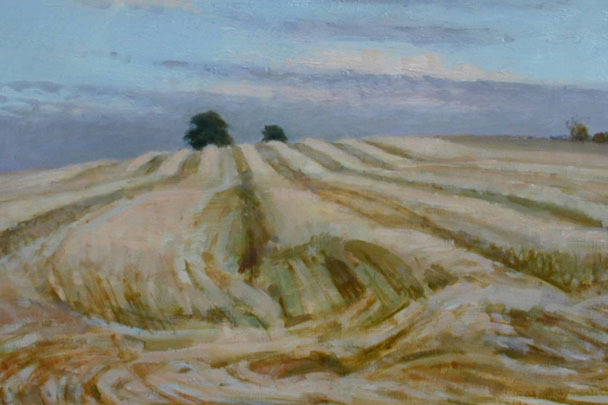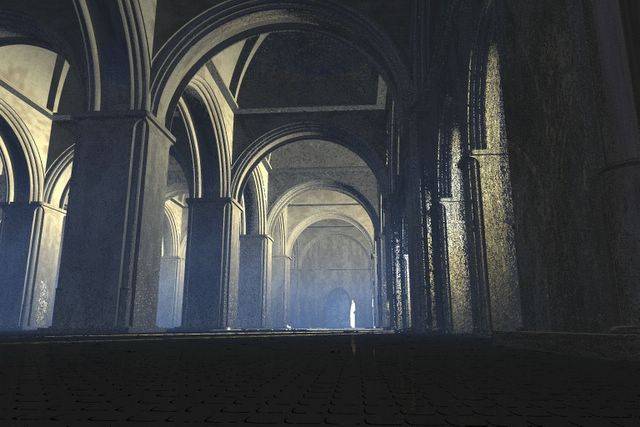 I'm still trying to answer the question about why I decided to become a writer. I have written five attempts already. All of those efforts have been scrapped. They were unnecessary and with every word I typed, I typed a lie. I wonder why that is. Why this topic, this question, is so evasive and prone to throwing up distracting falsehoods. What am I hiding from myself?
I'm still trying to answer the question about why I decided to become a writer. I have written five attempts already. All of those efforts have been scrapped. They were unnecessary and with every word I typed, I typed a lie. I wonder why that is. Why this topic, this question, is so evasive and prone to throwing up distracting falsehoods. What am I hiding from myself? Elsewhere in this web log, back in the mists of time when I still fostered some ambition, however uncertain it was, I made a statement about the fear of living without the dream of something better. Perhaps that is what I face now, perhaps that is why my fingers falter, the fear that what I have now is the best I can ever hope for, the epitome of my existence. Perhaps.
So in all the self-searching analysis that has gone on since my last entry here, did I ever come close to understanding why I suddenly decided, a few years ago, to try my hand at writing? Even now I really can’t say with any certainty. I find it difficult to extract the truth from the morass of ephemeral falsity in which it no doubt hides. But let me tell you about my father.
I am the only son of an only son. It is often said, by people who observe us together, that my father and I are very alike and I wonder sometimes, though never ask, whether he can see any of himself in me. Yet I think we are very different, similar metals, perhaps, but forged in different fires.  My father was born in the 1930’s in one of those grey colliery towns that clings to the coast of the North East of England. His father was a miner and his mother had spent time as a milliner before becoming a fulltime housewife, as all miners’ wives were in those days. Neither of his parents was well educated. I got the feeling that his father was dismissive of education and the educated. His mother, though, now that was a different matter entirely. If ever there was a story of unfulfilled potential through lack of opportunity it could have been found in that small, gentle and good-humoured woman. And whereas many of her fellow miners’ wives must have been content with their early emancipation from the school house, she was cursed with knowing that she could have thrived if she had been allowed to stay on at school, done a whole lot better for herself, in life and in marriage.
My father was born in the 1930’s in one of those grey colliery towns that clings to the coast of the North East of England. His father was a miner and his mother had spent time as a milliner before becoming a fulltime housewife, as all miners’ wives were in those days. Neither of his parents was well educated. I got the feeling that his father was dismissive of education and the educated. His mother, though, now that was a different matter entirely. If ever there was a story of unfulfilled potential through lack of opportunity it could have been found in that small, gentle and good-humoured woman. And whereas many of her fellow miners’ wives must have been content with their early emancipation from the school house, she was cursed with knowing that she could have thrived if she had been allowed to stay on at school, done a whole lot better for herself, in life and in marriage.
 So what hope is there for this boy of theirs, my father? A boy just discovering the world as
So what hope is there for this boy of theirs, my father? A boy just discovering the world as
Yet the war does come to an end and my father finds himself no longer living in the coastal mining town. His father has given up the grimy toil of the mines to become a publican, an inauspicious career move for a man who likes to drink more than he likes to work. The pub, an architecturally bland building devoid of any flourishes or finesse, sits like a squat box alongside a road that takes traffic north to
At night my father tries to sleep upstairs. The noise from the bar comes up through the thin floor, mixed with the stench of cheap cigarette smoke and stale beer. The noise is of men drinking, shouting, laughing, fighting and, for a young boy, it is terrifying. He knows well enough that there is more to fear than just the noise. What does he think of in those long nights? Does he think that this is where his destiny lies or does he dream of escape?
But although the nights are full of terrors, the days are different. Things are changing for this boy. Against the odds he finds himself attending the Grammar school in the city and even in such a conservative educational institution new possibilities are presenting themselves. He finds he even has some talent. Although he doesn’t know it, he will return to this school again some years later as a teacher and later still he will have a son attend there too, although by then it is no longer a Grammar School but has been transformed into a large
 At the weekends he escapes the dark and drab pub and runs with his dog across the fields. There, where field follows field to an endless horizon, lapwings take to the air and perform their low altitude acrobatics seeming to exhilarate just in their sheer mastery of the element. My father and his dog chase after them, knowing that they can never be caught. And in these fields what does this growing boy think about? As he looks at the clouds scudding across the sky, at the contours of the distant hills in the changing light, at the rainstorm coming in off the valley, and at the hedgerows, the scattered trees, the
At the weekends he escapes the dark and drab pub and runs with his dog across the fields. There, where field follows field to an endless horizon, lapwings take to the air and perform their low altitude acrobatics seeming to exhilarate just in their sheer mastery of the element. My father and his dog chase after them, knowing that they can never be caught. And in these fields what does this growing boy think about? As he looks at the clouds scudding across the sky, at the contours of the distant hills in the changing light, at the rainstorm coming in off the valley, and at the hedgerows, the scattered trees, the fields of barley, wheat and grass, is he thinking about what he is discovering in school? In school, it is becoming apparent that he is has a talent, a talent for art.
fields of barley, wheat and grass, is he thinking about what he is discovering in school? In school, it is becoming apparent that he is has a talent, a talent for art.
This talent seems to have come out of nowhere, certainly no inheritance from his father, and it fosters within him a creative urge that becomes all consuming. There is talk at the Grammar School that he should be thinking of
When he returns to the North East it is with his newly found fiancée, a student of medicine who will become a doctor, his wife, my mother. Where does the dream go then, when the children start to arrive? More mouths to feed, more bills to pay. He takes a position at his old school teaching art to give him a reliable, if not particularly large, income. And years pass. Eventually the children too leave school and home and he feels that he can at last give up his teaching post and return to his painting.
 Several years later and I’m working in
Several years later and I’m working in
 And somewhere in that story is the reason I decided to try to become a writer or at least some of the reason. Except, of course, it’s all lies. I don’t know whether there is any real truth to it at all. The bit with the lapwings, that’s true. But the rest? The rest I can’t make any guess at how much of that is true. Maybe some, maybe none but the core of the story, its real heart, is missing because I really have never asked my father about it, about his life growing up and discovering an unlikely talent.
And somewhere in that story is the reason I decided to try to become a writer or at least some of the reason. Except, of course, it’s all lies. I don’t know whether there is any real truth to it at all. The bit with the lapwings, that’s true. But the rest? The rest I can’t make any guess at how much of that is true. Maybe some, maybe none but the core of the story, its real heart, is missing because I really have never asked my father about it, about his life growing up and discovering an unlikely talent.
 Perhaps this has moved my exploration of the question on a bit, in a cursory and oblique way. I still can’t grasp at it, reduce it to a single imperative succinctly expressed in simple terms. Perhaps it also helps me understand that giving up that ambition was also inevitable. There are still many miles of uncharted corridors to explore here in Tartarus Central, though few promises of answers or suggestion that there is ever any way out.
Perhaps this has moved my exploration of the question on a bit, in a cursory and oblique way. I still can’t grasp at it, reduce it to a single imperative succinctly expressed in simple terms. Perhaps it also helps me understand that giving up that ambition was also inevitable. There are still many miles of uncharted corridors to explore here in Tartarus Central, though few promises of answers or suggestion that there is ever any way out.















